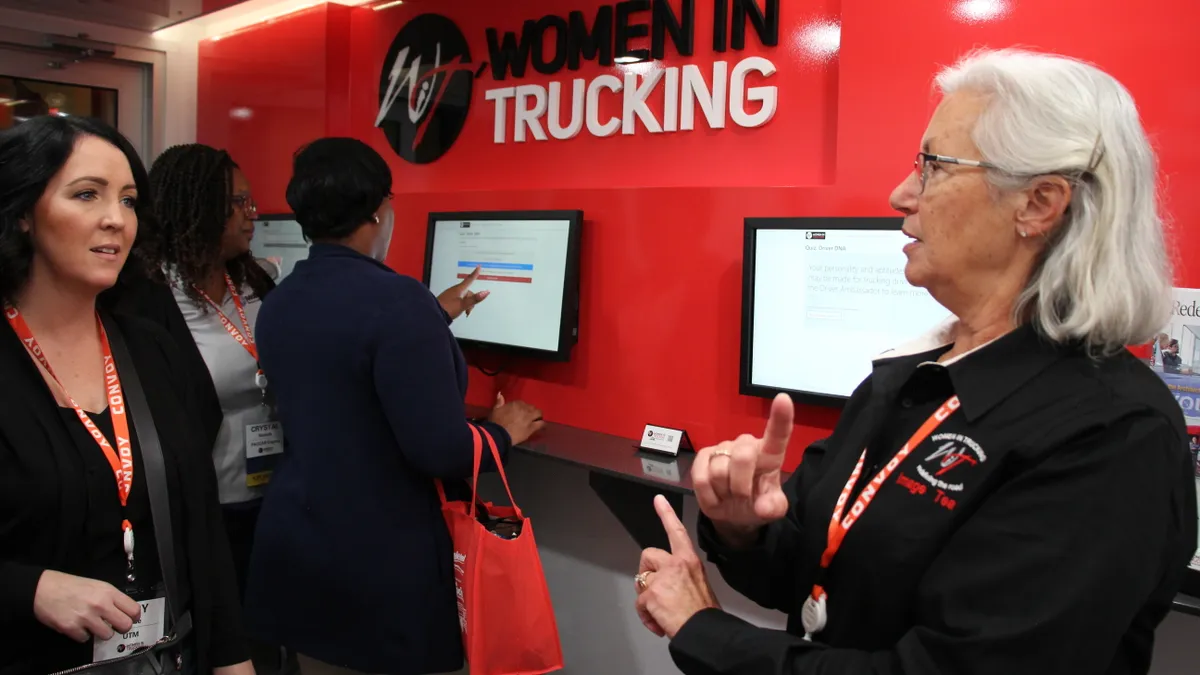DALLAS — Transportation executive Renee Krug offered her own take on gender disparities in the trucking industry: Women shouldn’t be misled about their qualifications based on a job hiring post.
Krug talked about the issue during an opening keynote for the Women In Trucking Association's Accelerate! Conference & Expo in November, saying the imposter syndrome can mislead people to thinking they were unqualified and lucky to get a position they received.
She's now the CEO of Transflo, a supply chain software company for fleets, brokers and drivers. But she recounted working her way up the corporate ladder, initially with a goal to become chief technology officer.
As an executive, she’s seen these gender differences firsthand. Krug cited examples of women believing they lacked the skills for higher-level jobs, but she reassured them and encouraged them to apply.
Krug cited examples of women who didn't think they could apply because they thought they lacked the skills they needed. Krug said she reassured them and encouraged them to apply.
Krug recalled a book by Sheryl Sandberg, "Lean In: Women, Work, and the Will to Lead," sharing the message that women tend to not apply for jobs because they view themselves as unqualified, whereas men do the opposite.
"I've watched this happen in my workplace within my teams," Krug said for her keynote talk. Krug said she's observed women not applying for jobs because they don't meet every job skill listed on a posting, in contrast to male applicants feeling they meet most of the requirements.
McKinsey & Co. research has noted these kinds of gender differences. In partnership with Sandberg's LeanIn.org, the management consulting firm found in its 2022 report that women make up 26% of the C-suite and 40% of manager roles, and 87 women are promoted for every 100 men into entry-level management roles.
Research by LinkedIn has supported this finding, too: The networking site wrote for a 2019 report that "women tend to screen themselves out of the conversation and end up applying to fewer jobs than men." It recommended that companies consider how and when they phrase job postings' must-have requirements.
"Don't think, 'I can't do that. I didn't have the skills,'" she said. "Because if you have the next job mastered, it's not a promotion."
Krug said she personally noticed that men at companies would reach out to her within less than a year of working on the job and inquire about their career paths. She encouraged conference attendees to plan out their workplace goals.
"If you want to progress and … have a career path, you ought to be talking to your managers about that next role," she said. "But it starts with you thinking through what do you want to do? Where do you want to go?"










